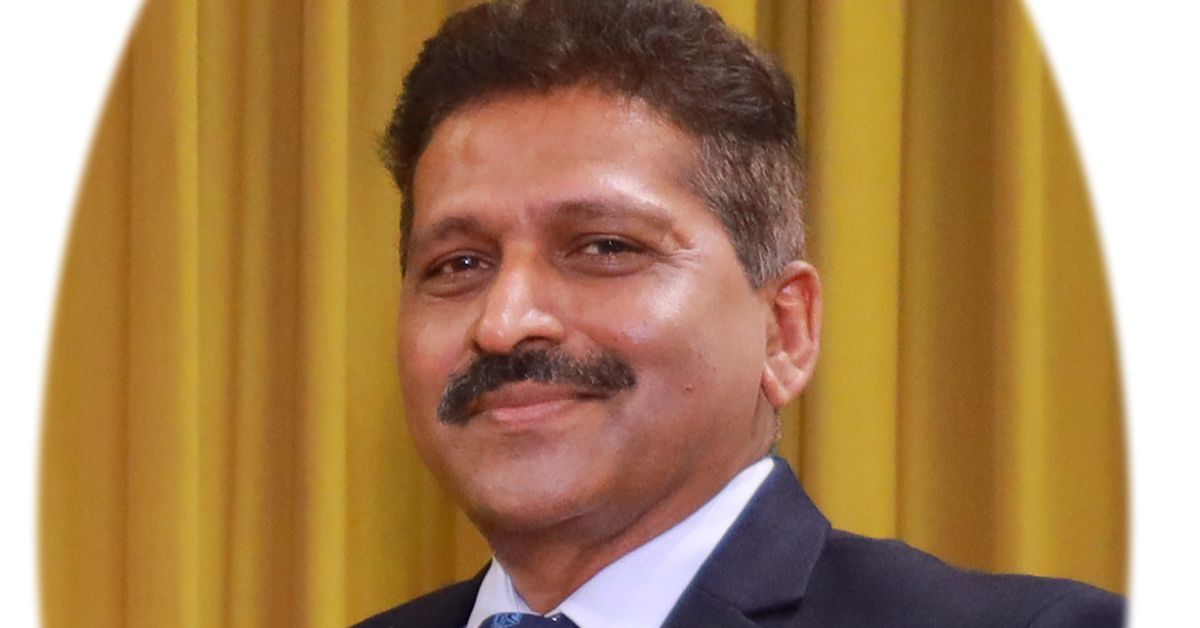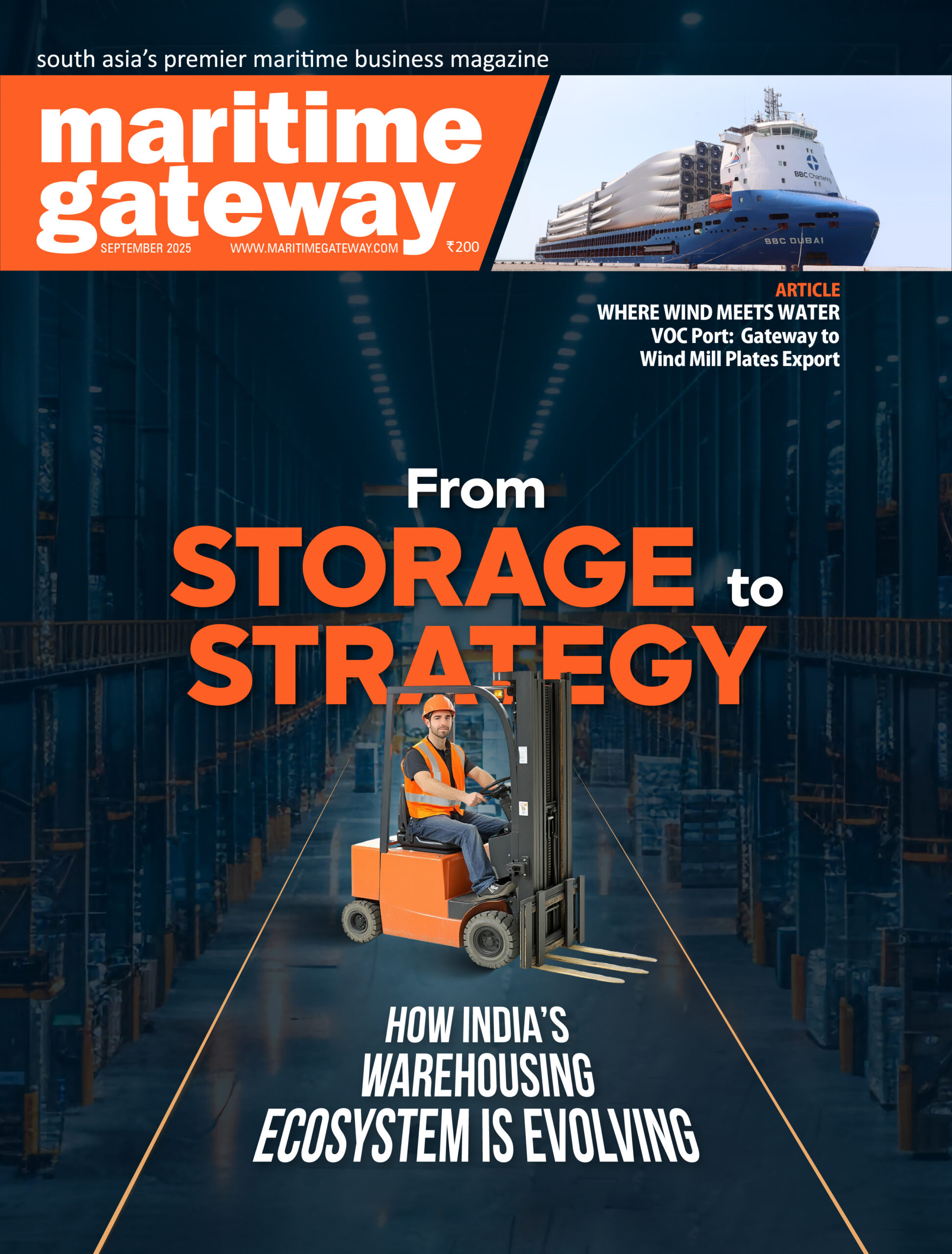Could you provide an overview of GRSE’s current order book, recent production milestones, and strategic priorities?
It is on record that GRSE’s order book value was `21,700 crore as on 30 June 2025. Our first Advanced Guided Missile Frigate under the Navy’s Project 17A – Himgiri has been delivered. We have also delivered the first Anti-Submarine Warfare Shallow Water Craft (ASW SWC) to the Navy, which has been commissioned and is in service as INS Arnala. This is the first warship of that class to be delivered to the Navy. It is also the largest waterjet craft to be used by the Indian Navy. The second ASW SWC, named Androth, has also cleared the Contractors’ Sea Trials successfully and is ready for delivery. The remaining six warships of this class have been launched and are being outfitted. Also, three ships of the Sandhayak class of Survey Vessels (Large) have been delivered. Apart from the six ASW SWCs, two P 17A Advanced Guided Missile Frigates and one Survey Vessel (Large) are also at various stages of outfitting. Four Next Generation Offshore Patrol Vessels are in their pre-outfitting stage. All of these are warships. Apart from these, we are building eight multi-purpose cargo vessels for a German client, four research platforms for various ministries under the Government of India and 13 hybrid ferries for the Government of West Bengal.
How prepared is GRSE–both in terms of infrastructure and design capabilities–to enter and compete in this space?
Designing and building a warship is the most complex exercise for any shipbuilder. As you are aware, GRSE has established itself as an expert in the field of warship building by delivering over a century of warships. This is something that no other shipbuilder in the country has been able to achieve. Once a shipyard has that kind of expertise in warship building, it can handle all kinds of orders and that is what GRSE is currently doing. In 2023, we delivered an oceangoing passenger-cum-cargo ferry to the Cooperative Republic of Guyana. This ferry, the first such foreign order to be handled by a shipyard in India, was built and delivered within contractual timelines, despite the challenges of Covid-19 pandemic. As I mentioned, we are now building eight multipurpose cargo ships for a German firm. These are specialised vessels that would be carrying windmill blades on their decks. We have also made a very successful foray into the world of green tech in shipbuilding. We have already designed and built a Next Generation Zero-Emission Ferry named ‘Dheu’ and delivered it to the Government of West Bengal. This is the largest vessel of its kind to be built and operated in India. Now, we are building 13 hybrid ferries for them. The keels of these vessels have already been laid.
India has set ambitious targets for domestic shipbuilding under its Atmanirbhar Bharat vision. How do you see GRSE contributing to these long-term goals across both defence and commercial sectors?
Yes, we are actually enthused by this initiative of the Government to promote India’s shipbuilding sector. Self-reliance in defence shipbuilding was the aim for quite some time now. Today, all orders of the Navy are being handled by Indian shipyards and GRSE is playing an important part in this. As mentioned, we are now handling 14 orders for the Navy. These include four Next Generation Offshore Patrol Vessels. GRSE has also emerged as the lowest bidder for the Navy’s Next Generation Corvettes. We are expecting more orders from the Navy and Coast Guard. GRSE is also fast emerging as a favoured destination for those on the lookout for commercial and specialised platforms. We have already received orders for four research vessels from the DRDO, Ministry of Earth Sciences and the Geological Survey of India. These research vessels used to be procured from abroad in the past. Now, we are building them in the country with a high indigenous content.
GRSE is actively expanding its global footprint and exploring international collaborations. How do these partnerships support GRSE’s growth strategy?
GRSE is now participating in global tendering processes for all kinds of vessels on a regular basis. We are happy that the shipyard is today globally recognised as one that can build advanced platforms and are expecting more orders. Recently, we signed a Memorandum of Interest (MoI) with Carsten Rehder Schiffsmakler und Reederei GmbH & Co KG, Germany, for which we are building the eight cargo vessels. This MoI is for four additional 7,500 DWT multi-purpose vessels with hybrid propulsion systems and compliant with the latest cybersecurity regulations. GRSE also signed a Memorandum of Understanding (MoU) with Dubai-based Aries Marine for the joint identification and development of offshore orders. While Aries will help in the design, GRSE will build the platforms. We have also signed an MoU with Kongsberg Maritime, Norway. This is in anticipation of a Request for Proposal (RFP) for a Polar Research Vessel for the National Centre for Polar and Ocean Research (NCPOR), under the Ministry of Earth Sciences (MoES), Government of India.
What steps are being taken to stay ahead in sustainable shipbuilding?
As I have mentioned, we have already built and delivered a zero-emission ferry that is now operational. We are also building 13 ferries that will run on hybrid propulsion systems. We are also exploring the possibility of introducing green tech on larger platforms. Not on warships, but commercial vessels. The German company that I mentioned earlier is also interested in four 7,500 DWT ships with hybrid propulsion. This provides us more opportunities in the green energy segment. For this, we are looking to collaborate with start-ups and academia as well as MSMEs.
How is GRSE leveraging advanced technologies in ship design, construction, and lifecycle management?
At GRSE, we have already incorporated technologies such as Artificial Intelligence (AI), Robotics, Virtual Reality and IoT. We believe in keeping abreast with the latest technology in shipbuilding as this is essential, not only for warships, but also commercial platforms that are getting more advanced by the day









